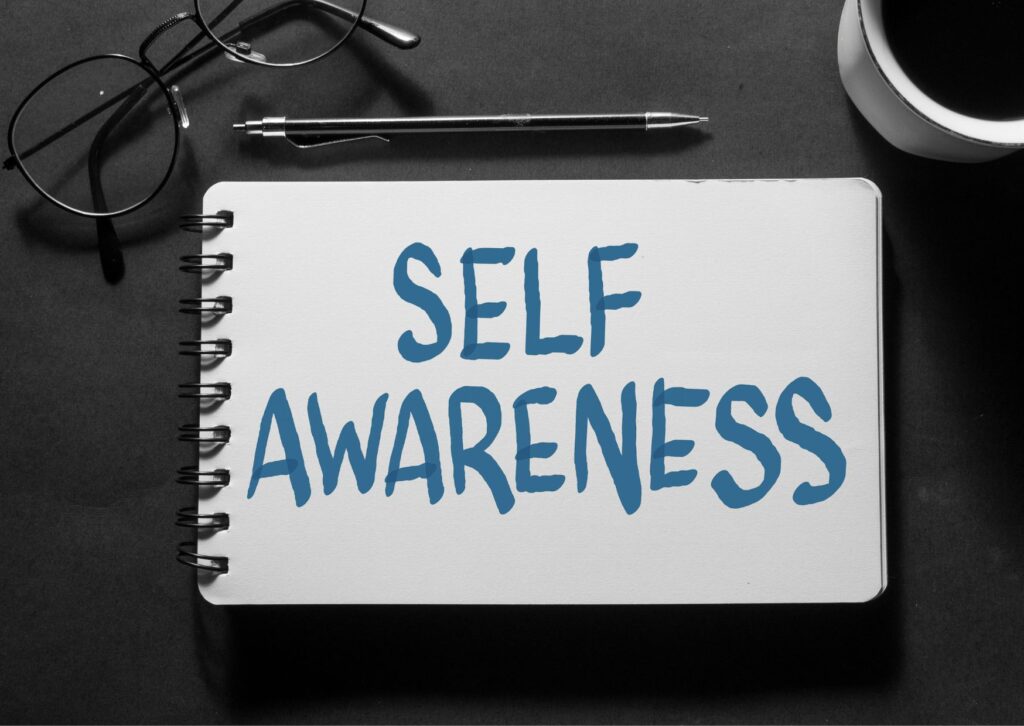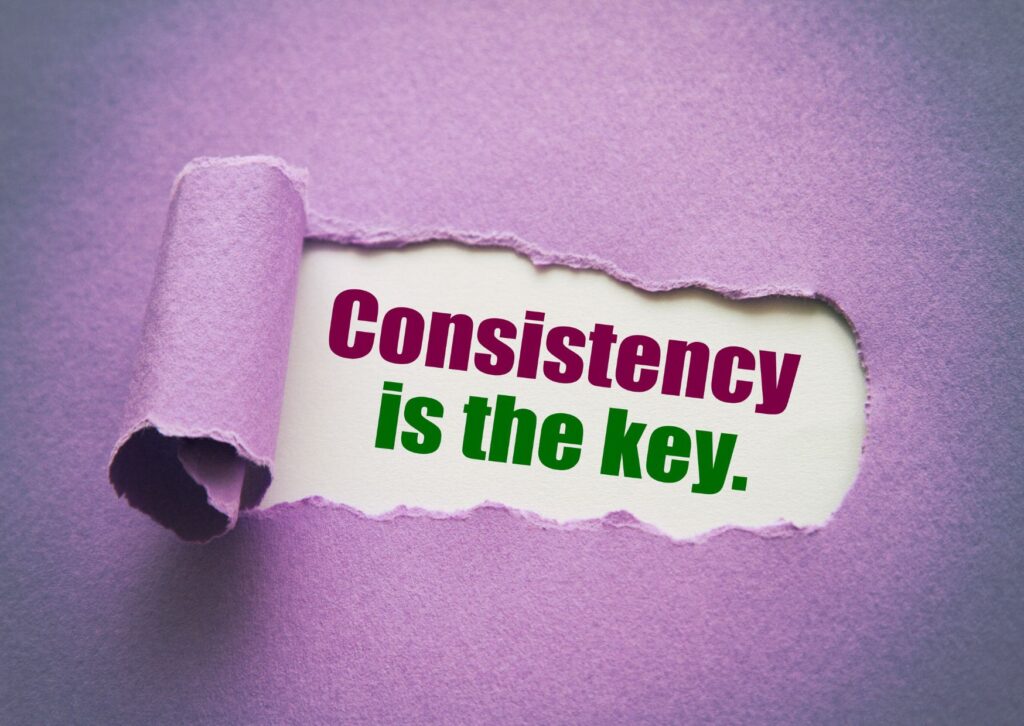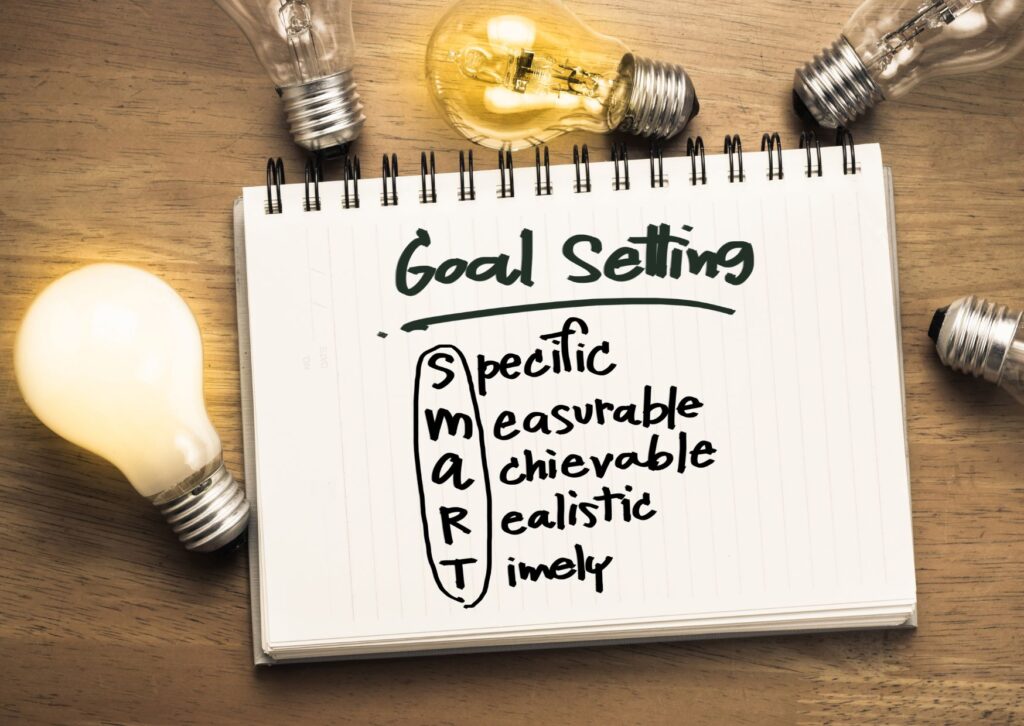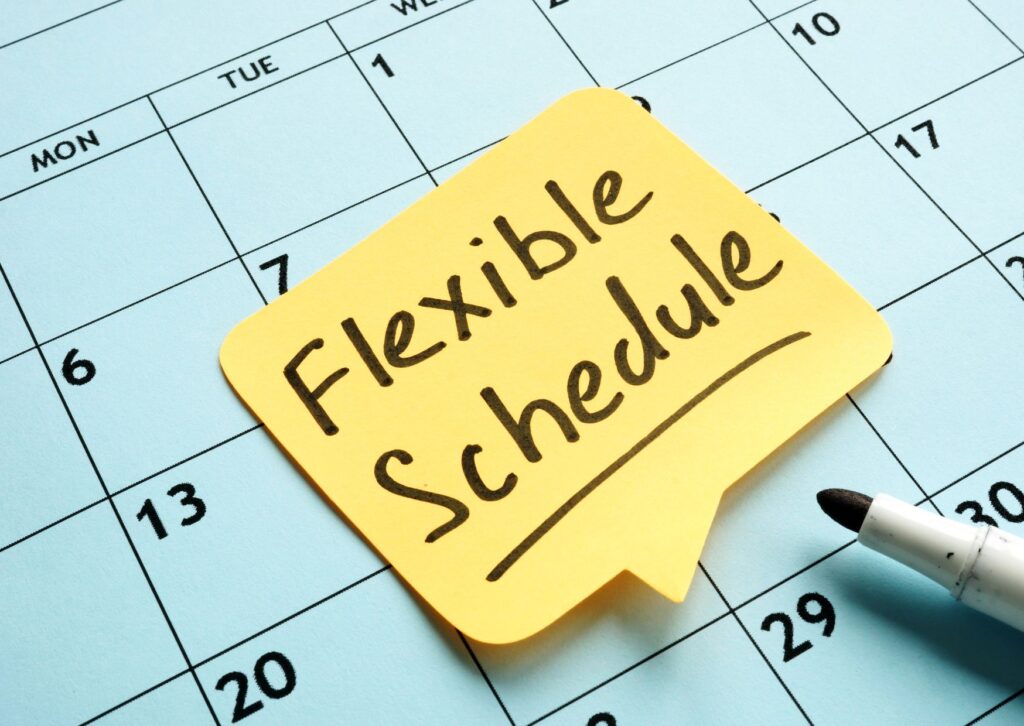10 Personal Health Goals to Improve Your Life
The journey to a healthier and happier life often begins with setting clear personal health goals.
These goals serve as a roadmap, guiding you towards better choices and habits that not only enhance your physical wellbeing but also uplift your mental and emotional state.
While the term “personal health goals” might sound formal, it’s essentially about understanding your current health status and envisioning where you’d like to be.
From improving sleep patterns to adopting a balanced diet, each goal propels you towards a life brimming with energy, positivity, and resilience.
Join me as we explore these transformative goals and the profound impact they can have on your life.
Contents
The Benefits of Personal Health Goals
Why You Should Set Personal Health Goals
10 Personal Health Goals to Improve Your Life
How to Get Started with Personal Health Goals

The Benefits of Personal Health Goals
Setting personal health goals isn’t just about achieving specific health metrics or adopting new habits.
It’s about laying the foundation for a holistic wellbeing that encompasses the body, mind, and soul.
Here are some of the benefits that come from establishing and pursuing these objectives:
Clear Direction and Purpose
Much like a compass in navigation, health goals give your wellness journey a sense of direction.
Instead of making random efforts, you have a clear path to follow, which makes achieving health milestones more systematic and feasible.
Enhanced Motivation
Setting a specific goal often acts as a motivator.
When you have a tangible objective in mind, the steps you take towards it become purposeful.
This can significantly boost your motivation levels, especially on days when you need a little extra push.

Improved Physical Health
It might seem obvious, but it’s worth emphasizing.
Setting and working towards health goals, be it weight loss, muscle gain, or better cardiovascular health, leads to tangible physical health improvements.
You’ll likely experience increased energy, better stamina, and fewer health issues.
Better Mental Health
The journey towards achieving personal health goals often requires cultivating habits like meditation, regular exercise, and a balanced diet.
All of these have been proven to have positive effects on mental health.
Additionally, the sense of achievement when you reach a goal is a great morale booster.

Accountability
When you set a specific goal, you’re making a commitment to yourself.
This sense of responsibility often leads to consistent efforts and prevents you from straying off the path.
Moreover, sharing your goals with friends or family can add an extra layer of accountability.
Long-term Vision
While some health goals might be short-term (like running a 5k), they often contribute to long-term aspirations, such as leading an active lifestyle even in your older years.
These goals help you look beyond the immediate and focus on ensuring long-lasting health and wellness.
Increased Self-awareness
As you set and work towards your goals, you become more in tune with your body and mind.
You’ll start noticing patterns, understanding what works for you and what doesn’t, and become more adept at listening to your body’s signals.
Why not check out our blog on “10 Self-Awareness Examples for Personal Growth”
In essence, personal health goals serve as stepping stones to a more enriched and fulfilling life.
They enable you to harness your efforts effectively and enjoy the multifaceted benefits of good health.

Why You Should Set Personal Health Goals
Deciding to set personal health goals is like gifting yourself a promise, a promise of a better, more vibrant life.
Let’s look into the intrinsic reasons why setting personal health goals can be a game-changer for your overall wellbeing:
Personal Empowerment
At its core, setting a goal is an act of taking control.
Rather than being a passive participant in your health journey, you become the active driver.
This empowerment can spill over into other areas of your life, fostering a sense of self-efficacy and confidence.
Tailored Approach
The word ‘personal’ in personal health goals is pivotal.
Unlike generic advice or broad guidelines, these goals are tailored to your unique needs, aspirations, and circumstances.
This customisation ensures that the path you’re embarking on is the most suitable one for you.
Consistency
With a defined goal in mind, it becomes easier to maintain consistency in your efforts.
Instead of sporadic attempts at healthy living, you cultivate daily habits and routines, making health and wellness an integral part of your lifestyle.

Prevention Over Cure
By setting proactive health goals, you are focusing on preventing potential health issues rather than addressing them after they arise.
This preventative approach often leads to fewer medical complications and a better quality of life in the long run.
Holistic Wellbeing
Personal health goals often extend beyond the physical realm.
They encourage a holistic approach to wellbeing, encompassing mental, emotional, and even social health.
This comprehensive focus ensures you’re nurturing every facet of your being.

Greater Life Satisfaction
Achieving a health goal, no matter how small, brings along a wave of satisfaction and pride.
Over time, these achievements can lead to greater contentment and happiness in life, making everyday experiences more enriching.
Financial Savings
While it might not be the primary motivation, it’s worth noting that a healthier lifestyle can lead to fewer medical bills and health-related expenses.
By investing in your health today, you’re potentially saving significant amounts in the future.
In a world inundated with health advice, personal health goals act as your guide, illuminating the path that’s best for you.
They offer a structured, effective, and rewarding way to ensure that every day you’re a step closer to the healthiest version of yourself.

10 Personal Health Goals to Improve Your Life
Here are 10 suggestions that you may want to consider as a personal health goal to get you started on your journey to great health and happiness:
1. Prioritise Sleep
Sleep is very important for our health.
It’s the time when our body repairs, rejuvenates, and restores itself.
Adequate sleep plays a pivotal role in immune function, metabolism, memory, and even mood regulation.
Strategy
Aim for 7-9 hours of uninterrupted sleep every night.
Create a bedtime routine that signals your body it’s time to wind down.
This could include activities like reading, taking a warm bath, or practicing deep breathing exercises.
Additionally, keep electronic devices away at least an hour before sleep, as the blue light emitted can interfere with the production of melatonin, a sleep-inducing hormone.
Benefit
Consistently getting quality sleep can lead to increased energy levels, improved mood, better cognitive function, and a lower risk of chronic diseases.

2. Maintain a Balanced Diet
The food we consume directly impacts our physical health, brain function, and even emotional wellbeing.
A balanced diet ensures our body gets the essential nutrients it needs to function optimally.
Strategy
Focus on whole foods like fruits, vegetables, lean proteins, whole grains, and healthy fats.
Minimise the intake of processed foods, sugars, and excessive caffeine.
Consider keeping a food journal initially to understand your eating patterns and areas that might need improvement. I
t can also be beneficial to learn about portion sizes and listen to your body’s hunger and fullness cues.
Benefit
Adopting a balanced diet can result in better weight management, enhanced digestion, reduced risk of chronic diseases, and an overall feeling of vitality.
Not to mention, it can play a crucial role in supporting mental health, reducing feelings of anxiety or depression, and boosting brain health.

3. Engage in Regular Physical Activity
Exercise is not just about weight management; it’s a comprehensive tool that benefits the body, mind, and soul.
It promotes cardiovascular health, improves muscular strength, boosts endorphin levels, and even enhances cognitive function.
Strategy
Ideally, aim for at least 150 minutes of moderate-intensity exercise or 75 minutes of vigorous-intensity exercise each week.
This can be broken down into manageable chunks, like 30 minutes a day, five times a week.
If this seems too daunting, start with just once a week to get going.
Find activities you genuinely enjoy, whether it’s dancing, hiking, cycling, or yoga.
Remember, the best exercise is the one you’ll stick to.
Benefit
Regular physical activity can lead to better cardiovascular health, improved bone density, weight management, reduced stress levels, and a lower risk of several chronic diseases.
Plus, the mood-enhancing effects of exercise can help combat feelings of sadness or anxiety.

4. Practice Mental Wellbeing Activities
Mental health is as crucial as physical health.
In today’s fast-paced world, stress, anxiety, and feelings of overwhelm can become commonplace.
Actively working on mental wellbeing ensures resilience and a healthier approach to life’s challenges.
Strategy
Dedicate time to activities that nurture your mind.
This could include meditation, journaling, therapy, or even simple hobbies like reading, painting, or listening to music.
Create a support system around you, and don’t hesitate to seek professional help if you feel the need.
Benefit
Focusing on mental wellbeing leads to improved emotional resilience, better relationships, enhanced decision-making abilities, and an overall sense of contentment.
By understanding and managing your emotions, you’re better equipped to handle challenges and enjoy life’s pleasures.

5. Stay Hydrated
Water plays a fundamental role in nearly every vital bodily function.
It aids digestion, regulates body temperature, facilitates cellular processes, and even helps keep our skin radiant.
Strategy
Aim for at least 2 litres of water a day, although individual needs can vary based on body size, activity level, and environmental conditions.
To make it a habit, consider carrying a reusable water bottle with you and setting reminders on your phone.
Remember, if you’re feeling thirsty, you’re already starting to get dehydrated.
Benefit
Adequate hydration supports optimal body function, resulting in better energy levels, improved digestion, clearer skin, and enhanced cognitive function.
Plus, it helps to detoxify the body, flushing out toxins and supporting kidney function.

6. Prioritise Social Connections
Humans are inherently social beings.
Our connections and interactions with others play a significant role in our overall wellbeing.
Maintaining strong social bonds can lead to increased happiness, reduced stress, and even a longer life.
Strategy
Make time for family and friends, ensuring you engage in meaningful conversations and activities together.
Join clubs or groups that align with your interests, volunteer in community services, or simply make an effort to meet new people and nurture existing relationships.
In today’s digital age, even virtual connections can be meaningful, but strive for face-to-face interactions whenever possible.
Benefit
Strong social ties have been linked to numerous health benefits.
These include a stronger immune system, reduced risk of depression and anxiety, improved self-esteem, and even better cognitive function as we age.
Being socially connected also provides a support system during challenging times, making us more resilient.

7. Manage Stress Effectively
Chronic stress can wreak havoc on both our physical and mental health.
It can lead to a weakened immune system, weight gain, sleep disturbances, and a host of other health issues.
Learning to manage and mitigate stress is essential for a balanced life.
Strategy
Identify your stressors and devise strategies to cope.
This might involve time management techniques, mindfulness practices, or even seeking professional counselling.
Activities like deep breathing exercises, yoga, and regular physical activity can also serve as effective stress relievers.
Make sure to set aside ‘me-time,’ moments where you engage in activities that bring joy and relaxation.
Benefit
Effective stress management leads to better emotional balance, reduced risk of chronic diseases, improved sleep quality, and overall better quality of life.
A calm mind also aids better decision-making and fosters positive relationships.

8. Reduce Screen Time
In today’s digitally connected world, screens have become omnipresent in our lives.
While technology offers numerous benefits, excessive screen time, especially before bedtime, can have detrimental effects on our eyes, sleep quality, and even our mental wellbeing.
Strategy
Set boundaries for screen usage.
Designate specific times in the day when you’ll be device-free, like during meals or the first hour after waking.
Consider using apps or built-in features that track and limit your screen time.
Especially avoid screens at least an hour before bedtime to ensure they don’t interfere with your sleep cycle.
Benefit
Cutting down on screen time can lead to better sleep, reduced eye strain, and a lower risk of conditions like digital eye strain or computer vision syndrome.
It also provides more opportunities for real-world interactions and experiences, promoting a more balanced lifestyle.

9. Practice Mindfulness and Gratitude
Mindfulness is the practice of being present in the moment, while gratitude involves focusing on the positive aspects of life.
Both practices have been shown to have profound effects on mental and emotional wellbeing.
Strategy
Dedicate a few minutes each day to practice mindfulness, which can be done through meditation, deep breathing exercises, or even mindful walking.
To cultivate gratitude, consider keeping a gratitude journal where you jot down three things you’re thankful for each day.
This simple act shifts your focus from what’s lacking or negative to what’s abundant in your life.
Benefit
Regular mindfulness and gratitude practices can lead to reduced stress, better emotional regulation, improved relationships, and an overall enhanced sense of well-being.
Over time, these practices can change your perspective on life, making you more optimistic, resilient, and content.
Gratitude can also have a profound positive impact in the workplace.
Why not check out our blog on “Why Employee Gratitude Matters”

10. Improve Flexibility and Mobility
Flexibility and mobility often get overlooked, but they’re vital for overall physical health, ensuring that our joints function optimally.
Maintaining good flexibility can reduce the risk of injuries, alleviate muscle imbalances, and even improve athletic performance.
Strategy
Integrate stretching exercises into your daily routine, focusing on major muscle groups and any areas of tightness.
Consider engaging in activities like yoga or pilates that emphasize flexibility and joint mobility.
Remember to warm up before any intense physical activity and cool down afterward, incorporating stretches during both phases.
Benefit
Focusing on flexibility and mobility leads to a greater range of motion in joints, reduced muscle tension, decreased risk of injuries, and improved physical performance in daily activities or sports.
Additionally, such practices can be relaxing, serving as a form of stress relief, and improving posture and body alignment.

How to Get Started with Personal Health Goals
Embarking on a journey towards better health can be overwhelming, given the abundance of information and advice available.
But remember, the best approach is often the one tailored to your unique needs and lifestyle.
Here’s a step-by-step guide to help you get started with setting and achieving your personal health goals:
Self-assessment
Before you set any goals, take a moment to assess your current health status.
Reflect on your daily habits, diet, physical activity levels, and any specific health concerns.
Understanding where you currently stand will give you a clearer picture of the areas you’d like to improve.
Define Clear Goals
Based on your assessment, pinpoint specific areas you’d like to work on.
Instead of vague goals like “I want to be healthier,” aim for more defined objectives, such as “I want to drink 2 litres of water daily” or “I aim to walk 10,000 steps every day.”

Prioritise
If you have multiple goals, it’s essential to prioritise.
Starting with too many objectives can be overwhelming and counterproductive.
Choose one or two key areas to focus on initially.
Set SMART Goals
Ensure your goals are Specific, Measurable, Achievable, Relevant, and Time-bound.
For instance, instead of saying, “I want to lose weight,” a SMART goal would be, “I want to lose 10 pounds in the next 3 months.”
Smart goals have helped many of the people who have attended our employee wellbeing workshops and I’m sure they’ll work for you too.

Plan and Prepare
Break down your goals into smaller, actionable steps.
If your goal is to eat a balanced diet, plan out your meals for the week, create a shopping list, and perhaps even try meal prepping.
Track Your Progress
Consider using journals, apps, or even wearables to monitor your progress.
Tracking can be motivational and can help identify patterns or areas needing adjustment.

Stay Educated
The world of health and wellness is always evolving.
Keep yourself informed about the latest research and findings related to your specific goals.
This knowledge can empower and motivate you.
Seek Support
Share your goals with friends, family, or consider joining support groups.
Having someone to share the journey with can make it more enjoyable and holds you accountable.

Celebrate Small Wins
While the end goal is crucial, don’t forget to acknowledge and celebrate the small milestones along the way.
These celebrations can keep you motivated.
Stay Flexible and Adjust
Your journey towards personal health goals is a dynamic one.
If something isn’t working, don’t hesitate to adjust your strategy.
Listen to your body and make changes as needed.
Lastly, remember that achieving personal health goals is a marathon, not a sprint.
Patience, consistency, and self-compassion are key.
With dedication and the right strategies, you’ll be well on your way to a healthier, happier you.

Personal health goals might seem like a daunting task.
However, investing in your wellbeing today can yield immeasurable benefits for the future.
Every small step you take is a stride towards a healthier, more fulfilled version of yourself.
Remember, it’s not about perfection but progress.
With the right mindset, tools, and support, you can transform these goals from mere aspirations into daily habits.
Good luck!
Author
Tyler Lowe – Health & Wellbeing Speaker
BSc Sport & Exercise Rehabilitation


